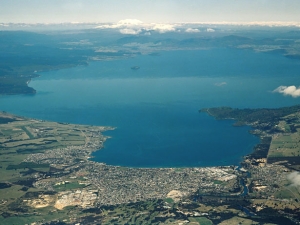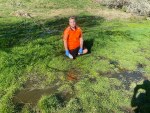The warning for properties in the Lake Taupō catchment is the first issued by Waikato Regional Council under the new Variation 5 consenting regime. Variation 5 is designed to protect the lake’s health from nitrogen, which can leach into waterways and cause nuisance algae.
The warning came after it was discovered more than a tonne of excess nitrogen could eventually leach into the lake due to the farmer’s operations over the two years. By themselves, the breaches are not expected to have a major detrimental effect on the lake’s future health.
“However, it’s important that farmers and others are aware that we will continue to monitor farming operations. We will hold people to account if they negligently or deliberately breach resource consents. This is not only for the health of the lake but also in fairness to all those working within their cap,” says the council’s farming services manager Nicole Botherway.
“This case is particularly unfortunate as the farmer has personally been involved in efforts to protect the lake. He has been open and co-operative, and acknowledged he did not do things properly on the properties concerned,” she says.
The council’s warning letter to the farmer, who is not being identified, said the breaches occurred because the farmer did not farm in accordance with his registered nitrogen management plan and failed to inform the council he was deviating from the plan. The breaches totalled an extra 1030 kilograms of potential nitrogen leaching in total.
Botherway says the reasons for the breaches by the farmer included a range of technical factors, including more stock being carried on the farm than was proposed under the farm’s nitrogen management plan. Other factors included carrying older and different breeds of stock than identified in the plan, the application of nitrogen fertiliser and less supplements made on the property than proposed.
“It’s a situation where more attention needed to be paid to adhering to the details of the farm’s nutrient management plan. We are serious about protecting the financial investment that Waikato Regional Council, Taupo District Council, Ngāti Tūwharetoa and central Government are making in protecting the lake,” she says.


















